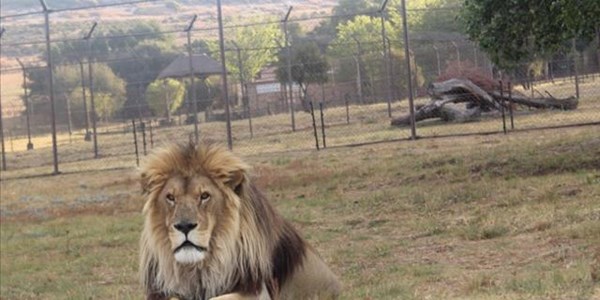Central SA
#WorldAnimalDay: Escalating wildlife exploitation a concern─── KATLEHO MORAPELA 07:28 Fri, 04 Oct 2019

Escalating canned trophy hunting, captive lion breeding, and lion-bone trade in South Africa are amongst some of the pressing issues that continue to plague the country.
According to animal protection organisations such as the Humane Society International/Africa and Four Paws South Africa, the exploitation of lions and other animals not only affects the biodiversity but the tourism industry and the economy of the country.
The two organisations with a global footprint have joined hands and gathered at the LIONSROCK Big Cat Sanctuary and Lodge at Bethlehem to raise awareness against trophy hunting and any other form of animal cruelty. This as the country on Friday celebrates World Animal Day.
These two animal welfare organisations have expressed their concern at increasing animal exploitation and explained that South Africa has an estimated 8 000 to 11 000 captive-bred lions being held at over 260 lion farms across the country. These lions are said to be suffering a vicious cycle of exploitation.
Wildlife director of HSI/Africa, Audrey Delsink, says it is concerning that more and more lions, together with other wild animals, are killed for profit as trophies or bogus medicines. This comes just two days after the arrests of three people suspected of trying to smuggle lion bones out of the country.
Guiding a group of animal wildlife conservationists and animal rights activists on a tour at the 1433-hectare holding just a few kilometres outside of Bethlehem, Delsink explained that "in the wild, lion cubs remain with their mothers for 18 months and adult females don't produce another litter for at least 15 to 24 months after giving birth, whereas cubs born on breeding farms are taken from their mothers when they are just a few days old, forcing the mother into a continuous breeding cycle".
She added that the captive breeding females are "incarcerated" in enclosures their entire lives, sometimes without adequate food and not allowed to express their natural behaviour.
The government is regarded to have been slow to act against the captive breeding industry despite these significant welfare concerns.
Celebrating World Animal Day at the LIONSROCK, which is home to hundreds of wild animals that have been rescued from all parts of the world where they were exploited, both organisations have urged all South Africans and tourists not to feed the industry of captive breeding, nor participate in any activity that exploit lions for commercial purposes.
Videographer: Katleho Morapela
OFM News




















